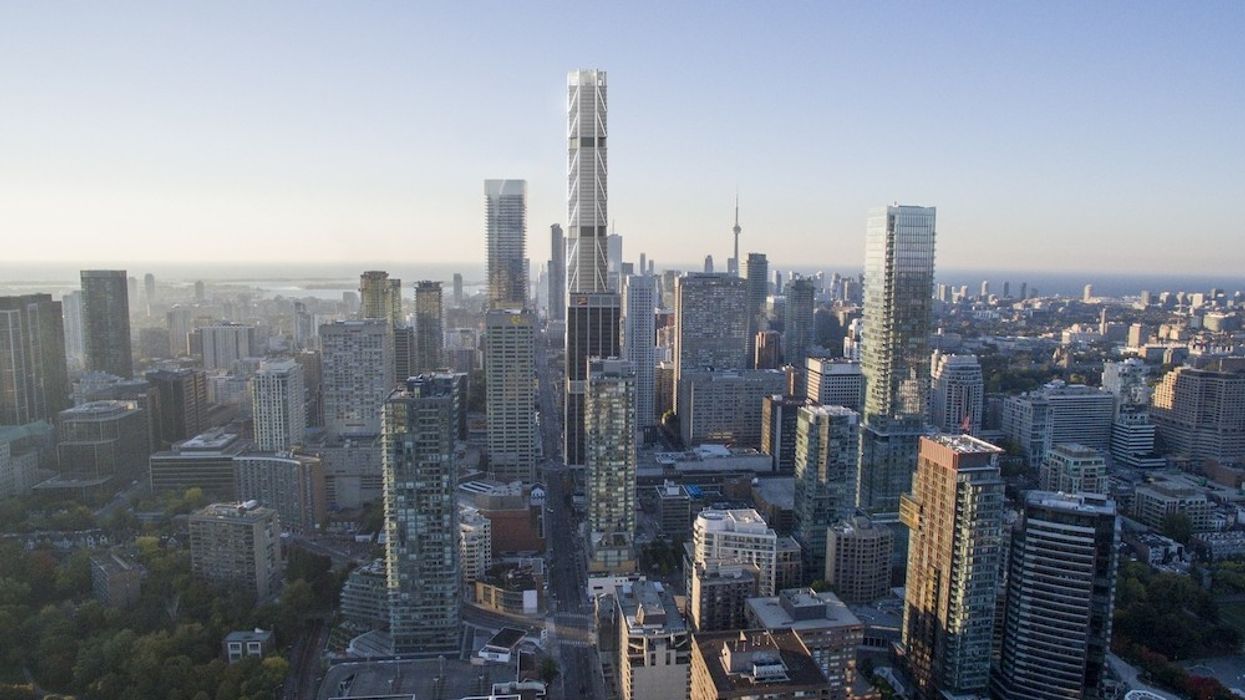This content has also been published in a special section on thestar.com and will appear in the Toronto Star’s Saturday Edition on September 23.
The 2010s were a great time to launch a new condo. Demand was high, realtors were motivated, and the opening day of a sales centre guaranteed dozens, if not hundreds, of pre- construction sales.
“It was like a party,” says Zev Mandelbaum, president and CEO of Toronto-based Altree Developments. “You’d have people out the door waiting. You’d give out bracelets to brokers to get them in the room to sell. It was like a trading floor.”
And then the pandemic hit. Supply chain issues abounded, construction costs skyrocketed, and the market strapped in for a roller coaster ride.
The past few years have markedly changed the condo launch experience. For developers who make it to launch day — an increasing number are cancelling, selling, or postponing projects as it makes more financial sense than following through — it’s no longer the sales-filled party it once was.
“Before, you probably sold 70% overnight. Today, to get to that number, it's a lot of work and it will take at least six to nine months,” Mandelbaum says.
But it’s not the rising construction or labour costs that are forcing the industry to work up a sweat — in fact, those were issues seen as relatively easy to overcome, particularly as the market picked back up later in the pandemic, just by pricing it into sales.
“If you opened at $1,500 a foot, then the next batch is $1,600, $1,700, $1,800, because that can make up for a lot of these increases in construction costs,” says MOD Developments CEO Gary Switzer.
In other words, that pandemic-era shift isn’t one that would have stuck around for developers like, say, the way switching to doing sales more digitally has.
Switzer, like most developers, sees prohibitively high interest rates as the primary culprit behind the condo launch shift. With each rate hike from the Bank of Canada, of which there have now been 10, more buyers moved to the sidelines due to both uncertainty and unaffordability.
Sam Mizrahi, president and founder of Mizrahi Developments, also points to the federal government’s foreign buyer ban, introduced at the beginning of the year, as having further constricted pre-construction sales.
“There's no question about it,” he says.
Mizrahi, whose under-construction 91-storey skyscraper, The One, is bringing 475 condo units, along with hotel and retail space, to the corner of Toronto’s Bloor and Yonge Streets, says these factors have shifted the profile of the pre-construction condo purchaser.
“You have much more in terms of Canadian citizens and Canadian residents purchasing,” Mizrahi says. “It's skewed a little bit.”
Pre-construction condos have always been a favourite among investors, with a near guarantee of profitable returns throughout recent history. But with high interest rates and even higher sale prices leading to costly mortgages that may not be covered by rental income, investor interest has shrunk somewhat.
“You have a small number of investors relative to what it was pre-COVID or pre-interest rate hikes,” says David Poon, a realtor at Toronto-based brokerage Strata.
Poon, who has extensive experience in new condo launches, says he’s seen a trend among newer projects of developers creating increasingly compact units in an attempt to make them more affordable, and thus more attractive to buyers.
“Studios used to be 500 square feet, now they're 350. One-bedrooms used to be 550 square feet, now they're 400,” he says.
Switzer has observed the same shift among some of his peers, but cautions against it, especially as the market slows down and buyers consider purchases more carefully. “People are actually looking at floor plans and not buying just based on taking their calculator out,” Switzer says. “They have to realize, well, if I'm buying this suite, can I actually lay out furniture? Can I actually live there? Can I actually rent it out?”
As agents work to get units sold, Poon has seen developers “becoming more aggressive” with purchase incentives.
“I was just at a sales launch, and they are giving free parking, a free locker, and four years free maintenance, so pulling out all the stops” he says. “Whether they priced it in – because there’s no free lunch — we never used to see this pre-COVID.”
Despite the hurdles, Mizrahi, Mandelbaum, and Switzer are all optimistic about future condo launches, knowing that in the real estate game, there are always waves to be ridden out.
“[Buyer] confidence is coming back,” Mizrahi says. “As a result, you're going to start to see, I believe, in 2024, the market back to the same confidence levels that it saw pre-pandemic."





















